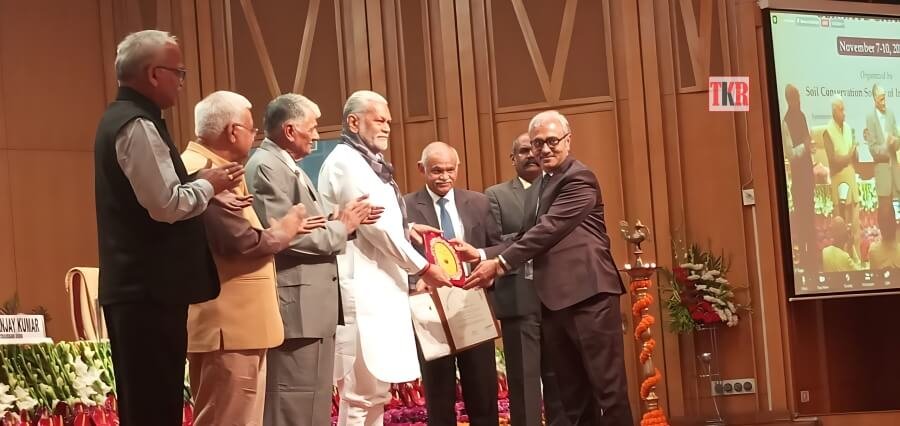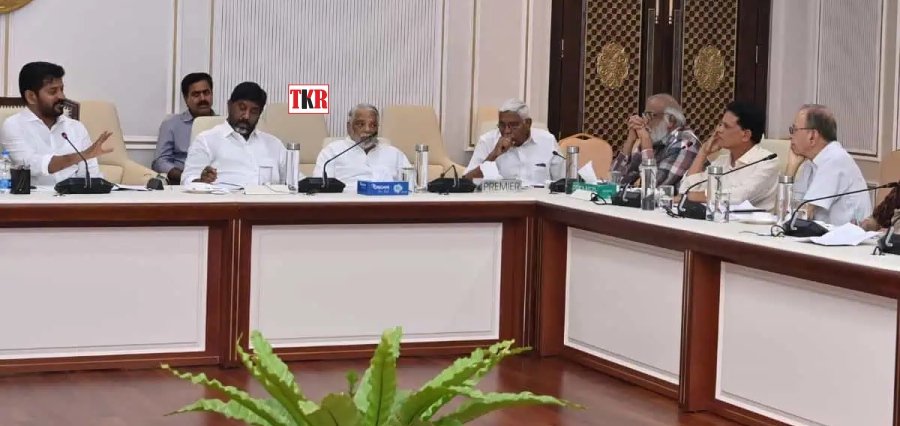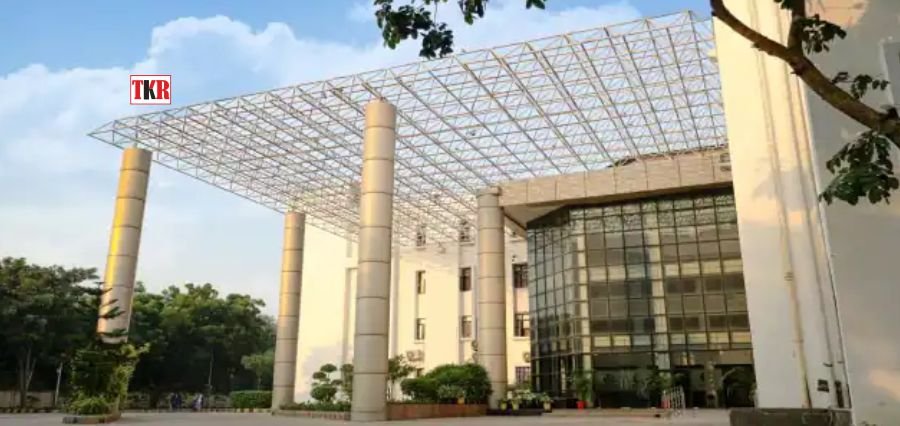“To unlock the tremendous national growth, it is imperative to nurture young minds and guide them in the right direction,” is the belief that drives Dr. Prashant Kumar Shrivastava.
As the Dean of the College of Forestry, Navsari Agricultural University, Dr. Shrivastava has been working closely with national government bodies to support several projects and studies revolving around water conservation and management. His career, spanning more than three and a half decades, has been both challenging and a rewarding experience.
The Burgeoning Roots
Dr. Shrivastava holds a Ph.D. in Agriculture Engg. with specialisation in Soil and Water Conservation Engineering from G B Pant University of Agriculture and Technology. He joined Navsari Agricultural University as a Researcher in the Soil & Water Management Research Unit in 1989, after his B.Tech. (Ag. Engg.) and M.Tech. (Ag. Engg.) from J.N.K.V.V., Jabalpur.
He has been extensively engaged in various national and international projects; his studies centred around irrigation scheduling, crop water requirements, agricultural drainage, water management, and water conservation.
In 2010, Dr. Shrivastava was appointed as Professor and Head of the Department of Natural Resource Management in the College of Forestry. Many students benefited from his expertise and field experience in land use planning, natural resource management, and water conservation. His passion and commitment to the environment became a source of inspiration to many students, academicians, farmers, and citizens of the region.
Developing & Strengthening Core Principles
Dr. Shrivastava firmly believes that academics is one of the satisfying professions that holds the capacity to ignite the hidden talent present in individuals. He justifies this by saying, “Academics remains a profession that gives the utmost mental satisfaction, which any amount of monetary gains and luxuries cannot achieve.”
He reaches out to the students through the faculty members. He identifies the expertise and interests of individual teachers in the college; these faculty members try to identify hidden qualities in each student, which are nurtured during their stay at college. “To maintain regularity in classes, he insists on practicals, field tours, and learning by doing to create interest and enhance the learning process,” he shares.
In addition, the University also organises several activities like sports, games, cultural, quizzes, debates, magazines, a celebration of days, motivational lectures, seminars, symposiums, workshops, NCC, NSS, etc., during the year. The variety of events keeps the students so engaged that they get enough confidence to face the world after graduating.
Dr. Shrivastava keeps himself abreast with the latest research and development through various Research Journals, Books, Seminars, National Conferences, and media. He is also a lifetime member of five national societies, from which he gets regular subscriptions with current findings.
Cultivating a Hands-On Learning Environment
Seeing and believing is the motto of project-based learning.
Dr. Shrivastava says, “Our successful ELP modules on Apiculture, Nursery Management and Bamboo Resource Unit are the best examples of project-based learning, where the students work from planting to preparing the final product, followed by marketing for around one year. They see the profits earned from their efforts.”
Similarly, they are taught skills to identify land use patterns through remote sensing, which is helpful in planning and policy-making. He expresses, “One of my personal experiences was when we could cultivate sugarcane (110 t/ha) from the land that was uncultivable and abandoned due to salinity, just by implementing subsurface drains in a block of 150 ha area. There are several such experiences on irrigation scheduling projects, when there was significant production increase and water saving. Many of such findings are used in policy decisions of the Government.”
Branching Out with Technical Prowess
Dr. Shrivastava was actively involved in the process of designing the course curriculum of Forestry degree programmes at the national level. He was also instrumental in designing the post-graduate course content in water management. He says, “Experiential Learning Units on Apiculture, Nursery, and Bamboo Resource Centre in our college are the unique models at the national level, which share significant income with the students.”
Technology also plays a huge role in the education field, so the implementation of smart classes was carried out during COVID–19. The faculties at the University attend various national training programs and implement the teachings in the institution. Technology is incorporated by acquiring several research projects that give the university a lot of funds to obtain the latest instruments, devices, and machines.
Maturing Through Challenges
The major challenge that Dr. Shrivastava faces is time constraints in accomplishing several tasks within the deadline, especially with a limited staff. It is challenging to keep the staff motivated, so Dr Shrivastava delegates the work depending on the individual’s ability and interest. He also follows up with allotted tasks and motivates and appreciates them in person and in public as well. He believes in giving the entire credit for the work done and gives written appreciation. “Genuine recognition and appreciation work wonders; it reflects in the performance of both students and teachers,” he adds.
Sweet Fruits of Awards
A successful educationist stays in touch with his students, their calibre, and their staff while keeping an eye on national or state directions. Dr. Shrivastava understands that the employability of students and entrepreneurial skills, which are in demand, need to be looked into by educational leaders. His efforts have been cherished on multiple occasions. Below are the major ones:
- National Fellow by Soil Conservation Society of India
- Sardar Patel Award conferred by Government of Gujarat for research
Under Dr Shrivastava’s leadership over the last decade, the College of Forestry is among the top-notch and sought-after colleges accredited by ICAR and ICFRE. He was actively involved in several research projects from the Department of Science and Technology, DST, ICAR, Indo Dutch Drainage Network Project, World Bank-funded Watershed Project, and numerous State projects. Education World ranked ASPEE College of Horticulture and Forestry among the top colleges at the national level under his leadership.
In addition, during COVID-19, the Embassy of Afghanistan appreciated his help to the students of Afghanistan studying in the college.
A Legacy of Service
Dr. Shrivastava shares, “In the era of climate change when the world is looking to preserve natural resources and green technologies, with my lifetime experience in these aspects, I would like to continue providing services, technical guidance to the society on water management, rainwater harvesting, forestation, and animal welfare.”
“I would also look forward to joining some non-profit organisation involved in educating poor children,” he concludes.





